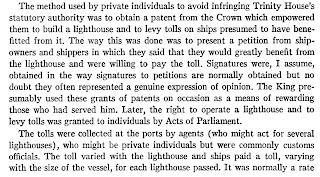I don’t think anyone has yet mentioned Doug’s influence on
the teaching of economics. The
Economics of Public Issues (19th edition) is still in print,
though the first edition is still, in my opinion, the best. Like all successful
entrepreneurs North and Miller attracted competitors and influenced the way
material is presented in standard textbooks. Doug told me it sold enough to put
three sons through Stanford. The book came about as a result of his returning
to teaching principles of economics after several years of not having done so. He
finished his lecture on perfect competition with some reference to agricultural
markets and asked if there were any questions. A student stood up in the back
of the lecture hall. Doug asked him what his question was and the student said “That’s
bullshit.” Doug said if you’re so smart why don’t you tell us all about it. Turned
out the guy grew up on a farm in Eastern Washington and knew all about how the government
interfered with agricultural markets. Doug said he knew that he couldn’t keep
giving textbook lectures, but he didn’t know what he should do. He had been
working with the Seattle City Council and began his next class with a statement
about how many rapes and murders the council had voted to allow, illustrating
the consequences of choices about how to allocate spending in the city. Doug
ended up writing stories about the economics of crime, abortion, baseball,
marijuana etc. He said it was Roger Le Roy Miller’s idea to turn these stories
into a book. It sold so well as a textbook that they tried to sell a trade
version called Abortion,
Baseball and Weed. It bombed; people weren’t ready for freakonomics yet.
I also wanted to note that a couple of couple of places (e.g. NY Times) have
mentioned that Doug’s father dropped out of school to become an office
messenger. What they did not mention was that his father went on to become
vice-president of Metropolitan Life Insurance Company. Doug’s uncle, his father’s
younger brother, eventually became the president of Metropolitan Life Insurance
Company. I had the impression that he was quite proud of his father. He said that
his father was always the one to give the speech when they wanted to get the
agents fired up. Doug’s dissertation was a pretty traditional economic history of
the life insurance business, with a focus on the Armstrong Investigation. I seem
to recall that he said his family was not particularly pleased with his
essentially airing the family’s dirty laundry.
Here are some tributes to Doug by people who knew him well
Yoram
Barzel remembers Doug at University of Washington
John
Nye has both a personal reflection and a review of Doug’s contribution to
economics.
John
Wallis provides a really good review of Doug’s contributions to social
sciences.
Barry
Weingast’s tribute to Doug is my favorite so far. As soon as I saw the
quote beginning with “Listen, Bub” I could heard Doug’s voice.


